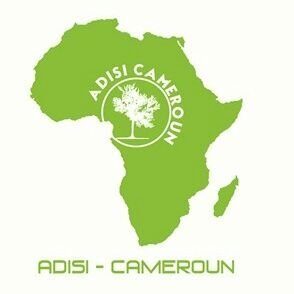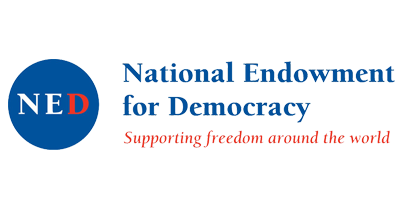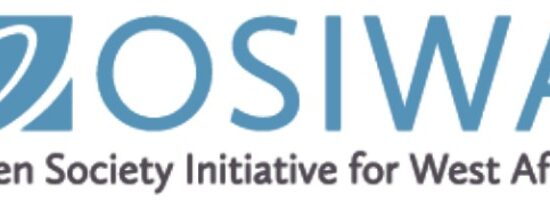Central Africa: Pangolin trafficking generates nearly 419 billion CFA francs each year
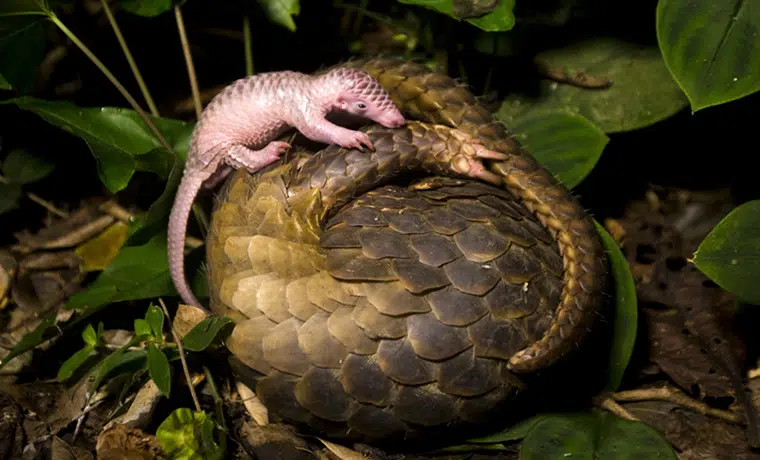
Central Africa: Pangolin trafficking generates nearly 419 billion CFA francs each year
The world’s most poached mammal is much more hunted for its scales, which are sold on an illegal market bound for Asia. The « juicy » trade in this protected species, the guardian of the forest, benefits smugglers and their accomplices, including senior civil servants and agents of international institutions . Investigation.
One morning in August 2023, a resident of Mouanko, in Cameroon’s Littoral region, discovered a pangolin not far from her home in Yadibo. On contact with humans, the animal curled up on itself. The restaurant owner was delighted when she caught it and added it to the menu the next day. News of this unusual capture quickly spread around the coastal township, surprising many people. At the Douala-Edéa National Park Conservation office, the news was astonishing. Especially as this class A, protected animal species has not yet been recorded in the ecological monitoring. But a resident of Yoyo recalls eating the highly prized pangolin meat six years earlier, in 2017
People in their sixties living in this locality in the Sanaga-maritime department also remember that fifty years ago, pangolins were visible in the area. « When we were children, we sometimes saw pangolins and ate its meat. Today it’s very rare. There are at least two generations after us who will only see pangolins in books« , deplores Samè Diyoukè, one of them. He believes that this species is in danger of total extinction in Mouanko. The proof is that since his restaurant opened in 2019, not a single hunter has offered pangolin meat.
Far from Mouanko. in localities such as Muyange and Bunyakiri, near the Kahuzi-Biega National Park in the Democratic Republic of Congo, the scaled mammal is not often absent from the menu. However, demand has increased in recent years, according to a team of researchers from the International Formulae Group. Their report on the exploitation of the pangolin reveals that demand for the animal is increasingly coming from large towns such as Bukavu, Goma and Kisangani, and sometimes from other countries. The pangolin is sought after for its meat, but more so for its scales. This has heightened the anxiety of biodiversity conservationists, who are worried about the scale of pangolin trafficking. West and Central Africa have become the epicentre of the traffic to Asia.
2.7 million pangolins killed each year in Central Africa
According to a database (consulted in September 2023) of the Centre for Advanced Defence Studies, C4ADS, a US research organisation tasked with defeating illicit networks that threaten peace and security around the world, more than 26,500 kg of pangolin scales from Central Africa were seized between 2013 and 2023. That’s just over 66,000 pangolins removed from the forests of Central Africa in ten years. This figure for the decimated population is based on a calculation by the World Customs Organisation (2013). It estimates that 3 to 4 pangolins need to be killed to produce 1 kg of scales. A group of Chinese researchers led by ZM. Zhou has estimated the weight of a pangolin’s scales at 0.360.51 kg.
According to C4ADS data, 116 pangolins were seized between 1 January 2013 and 9 July 2023. These shipments originated from Cameroon, DRC, Congo, Gabon and Equatorial Guinea . Based on this data, Cameroon and the DRC rank first in the sub-region in terms of countries of departure for trafficked pangolins.
They are ahead of Congo, Gabon and Equatorial Guinea, for which seizure data is scarce.
This lack of data is justified by the nature of the information reported by the American agency, which only uses data available to the public. “This may be because the authorities are not aware of this traffic. But in Cameroon, we realise that scales come from these countries. Like the shipment of 600 kg of scales from Bangui that was seized in Douala. But we don’t hear about any arrests in the CAR« , Eric Kaba Tah explains. He is deputy director of The Last Great Ape Organization Cameroon Laga, and coordinator of the Central Africa Bushmeat Action Group(Cabag). Eric Kaba Tah, who has been working to combat the trafficking of protected animal species for 15 years, says that in 2023 alone, more than 250 kg of pangolin scales were seized in Cameroon and nine traffickers arrested.
The magazine Conservation Letters, contrary to the estimates obtained from the C4ADS database, considers that up to 2.7 million animals (675,000 kg of scales) are killed each year, and identifies the African pangolin as the most poached mammal in the world, far ahead of the much more publicised elephant. Conservation Letters also identifies the countries listed by C4ADS as some of the main points of origin for products. The magazine includes the CAR and presents Nigeria as an embarkation point for scales destined for Asia, mainly China and Vietnam.
A lucrative business
The pangolin scale trafficking network to Asia is pretty well organised, starting in the forests of Africa. These increasing numbers of predators sometimes spend several days in the bush hunting. The booty is just as substantial because of the vulnerability of the small mammal, which, as its only protection, rolls itself up in the face of danger. It is immediately collected by the hunters In villages around the Yangambi forest in the north-east of the DRC, for example, almost 90% of local young people are involved in illegal hunting, according to Jonas Kambele Nyumu. This researcher from the University of Kisangani has made pangolin conservation research a speciality.
The meat of the animal caught is mainly intended for local consumption. The prized meat sold at a low price. In the DRC, Jonas notes that a small pangolin with scales is sold for around US$6 (3,700 CFA francs) . The price is almost the same in Cameroon and the CAR. This is 300 times cheaper than in China, where a restaurant owner can spend up to 1,800 dollars (nearly 1,114,000 CFA francs) to buy a live animal.
The price of the scales sold to traffickers is much more derisory. They sell them without weighing them for 3 or 4 dollars, the equivalent of 8 or 10 kg, » notes Jonas Kambele Nyumu. That’s nearly 0.4 dollars (250 CFA francs) for one kg of pangolin scales. On the international market, however, this « mine » is sold for up to 1,000 dollars (nearly 600,000 CFA) per kg, more than 2,000 times more expensive than in the country of origin. On this basis, the illegal trade in the scales of 2.7 million pangolins taken from the forests of Central Africa generates at least 675 million dollars in illicit revenue (419,151,780,000 CFA francs) each year for traffickers and their accomplices.
Nigeria, a major hub
Once the scales have been collected by intermediaries in the major poaching areas of the Republic of Congo, Cameroon, Gabon, CAR, DRC and Liberia (West Africa), the road to international markets begins. The report Out Of Africa maps the smugglers’ routes. The goods are packaged for transport to Nigeria. They are loaded onto small cars, buses, trucks, dugout canoe or boats. Sometimes traffickers make the journey on foot. They bribe the authorities to ensure that the fraudulent cargo crosses borders. According to conservation NGOs such as Aboyerd or Laga, the illegal product is often hidden in bags, among other goods such as wood or foodstuffs.
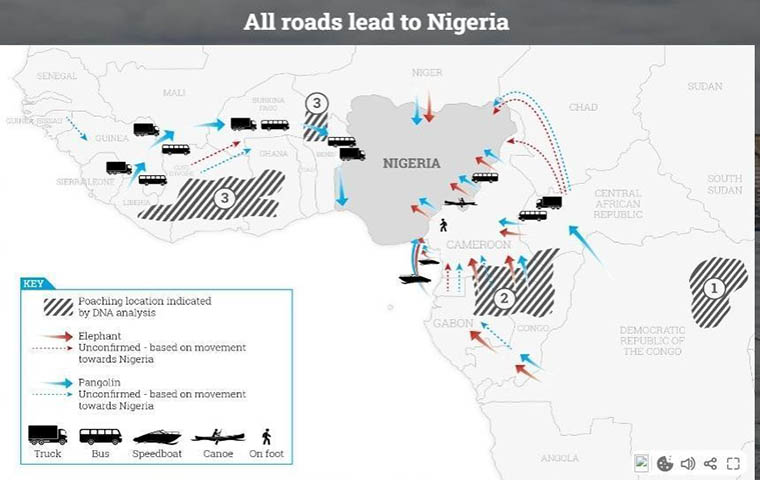
Nigeria, which receives all these shipments, is a hub for trafficking pangolins from the forests of the Central African sub-region. Witness this unique seizure made by Hong Kong Customs in July 2018 of 7,100 Kg of scales (i.e. nearly 22,864 pangolins). According to the database compiled with the assistance of the IUCN SSC, Pangolin Specialist Group, the scales exported from Nigeria originated in Cameroon, CAR and DRC.
In Nigeria, according to the Out Of Africa report, an agent prepared the bill of lading , which he deliberately altered to avoid suspicion. This is a document given by the maritime carrier to the shipper (or his representative) in recognition of the goods his ship is to carry. Customs officials are bribed not to inspect cargo as it boards the ship or plane. Destination: Malaysia in Asia, with occasional transits to Singapore, Laos and Indonesia. Shipments make their final journey to the end consumer market for pangolin scales in China and Vietnam.
All roads lead to Asia
There is another supply chain for traffickers. It relies on pangolin breeding programmes to disguise trafficking as an ostensibly legal commercial activity. However, « Pangolins do not survive or reproduce easily in captivity », according to the Convention on International Trade in Endangered Species (CITES).
Although Asia is the continent of destination of choice, with China, Vietnam, Macau and Malaysia as host countries, analysis of C4ADS data also reveals domestic trade in species in the countries of origin, which also serve as transit countries. Europe is the last destination of choice. No routes to the Americas have been identified.
All means of transport are used in the illegal trade of protected species. According to Tipping the scale, a C4ADS study, air and sea routes are the most heavily used. « While 70% of intercontinental traffic linked to Africa relies on the air transport sector, 81% of the total weight of pangolin scales is traded intercontinental via the maritime transport sector », the report details. Shipments of pangolin scales linked to Cameroon are most often seized at the air and sea ports of Douala and Yaoundé, or at land border crossings to neighbouring countries.
According to a Cameroon Customs seizure database, between 2012 and 2016, Ethiopian Airlines was the airline most frequently approached by traffickers on departure from Douala. It is followed by Kenya Airways. A customs official who requested anonymity said that those involved in the illegal trade often pack the pangolin scales in powder form, concealed in milk tins. One such seizure, of 18 kg of powder, took place in 2016 at Douala international airport during a check while an Ethiopian Airlines flight was being processed. The flight’s final destination was China in Asia, with transhipment in Addis Ababa.
In addition to the taste of this mammal’s flesh, which is much appreciated in restaurants in China and Vietnam, pangolin scales are prized in traditional Chinese medicine for their healing properties which have not yet been scientifically proven. Pangolin scales are said to have the power to cure around thirty ailments, from erectile dysfunction to the most serious cancers. Essentially made up of keratin, pangolin scales, which are also thought to have magical properties, are mainly used in cosmetics. However, on 9 June 2020, China announced the removal of pangolin ingredients from the official list of traditional pharmacopoeia products promoted by the government .
Corruption
In July 2023, on the esplanade of Douala 3e town hall, a civil servant, with an annoyed look on his face, denounced the excesses of wildlife officers during an educational talk with association leaders. « The control brigade does everything except control. All they’re interested in is selling species, » he confides. He makes it clear that these officers of the brigade are accomplices of the traffickers. It’s an open secret, he says, given the cash being sold in our towns. Often a witness to shenanigans carried out by the staff involved in the controls, he says no more about the modus operandi, for reasons of discretion.
According to the report Out of Africa, up to 70% of the fees charged by corrupt customs clearance agents are for bribes paid to government officials and staff of private transport companies involved in the container scanning process. From the forest areas where the animals are tracked, captured and killed to the States’ exit gates, traffickers have to pass through various checkpoints. However, large quantities of species and derivatives smuggled out of the country are only intercepted abroad.
In Douala, Cameroon, attempts to contact officials at the Ministry of Forestry and Wildlife(Minfof) were unsuccessful. However, acts of corruption are often recognised and punished within the ministry. In 2021, 13 staff members, including Water and Forestry technicians and engineers, received warnings or reprimands for various misconduct. Complicity in illegal logging, laxity in the performance of their duties and corruption are among the offences recorded in the 2021 report of the National Anti-Corruption Commission (NACC). Although the public body does not explicitly mention protected animal species, it should be noted that, as some studies have shown, the illegal transport of timber often conceals trafficking in protected animal species.
At the mention of corruption in the Cameroon Customs Service, the agent at Douala International Airport is stunned. According to him, it is impossible for customs officers at this site to indulge in corrupt practices, because the global transparency mechanism makes it easier to identify shortcomings. « Since I’ve been working here, I haven’t seen any crooked dealings. Parcels from [traffickers] leaving Douala can be intercepted anywhere in the world and we’ll know that it left from Douala . Can you imagine the consequences? No Chief can get through, » he defends himself. He goes on to explain that the officers assigned to surveillance use a targeting approach to identify suspects. The behaviour of individuals is scanned.
But it is still difficult to trace the owners of the packages seized. The reason, says our source, is that they remain in the background and pay courier agencies to send packages containing the prohibited product. While Customs at Douala International Airport seized 471.38 kg of pangolin scales bound for China between 2012 and 2016 (including 447.45 kg in 2013 alone), an internal source reveals that since 2019, no more pangolin scales have been seized in Douala. But trafficking is not over, he adds. And he points out that in the trade, « people say that the smugglers have changed their techniques. We’re working to catch them. They can take the scales out by road, across other borders, » says the customs officer.
Some Officials Involved
Other factors, such as porous borders, exacerbate trafficking. This phenomenon is all the more glaring because several countries in the sub-region are facing security instability. « The country’s worrying security situation and repeated crises have made the borders porous. This gives poachers the opportunity to step up their activities, with nothing to worry about, » deplores David Ouangando, Director of Wildlife and Protected Areas at the CAR Ministry of Water and Forests. The United Nations Office for Central Africa UNOCA also highlights this aspect in its rapport “Poaching and trafficking of wild species.”
Over and above all these influences, there are the voracious appetites of individuals and groups of individuals specialising in this illegal trade, the 4th most lucrative transnational organised crime activity in the world, according to Nature and Crime by the International Fund for Animal Welfare Ifaw. A minority determined to plunder the riches of these Congo Basin forests. According to Minfof’s record of offences, on 18 January 2017 alone, a Chinese individual was apprehended with 5,040 kg of pangolin scales from. Cameroon. The equivalent of 20,160 pangolins slaughtered. Agents of international institutions are also accused of involvement in trafficking. Soldiers from the United Nations Mission for the Stabilisation of the Democratic Republic of Congo (MONUSCO), for example, were cited by the International Formulae Group.
In recent years, senior officials in some countries have also been accused of using cash to enrich themselves at the expense of the state. Cosma Wilungula Balongelwa, the Director General of the Congolese Institute for Nature Conservation (ICCN) was suspended from his duties by the Minister for the Environment and Nature Conservation. Accused of serious breaches of duty, including embezzlement and corruption, the teacher, who is also a pastor, resigned a few weeks later.
In September 2023, this official and two of his former collaborators at ICCN (Léonard Muamba Kanda and the director coordinator of the DRC Management Authority for the Cites Convention and legal adviser to ICCN, Augustin Ngumbi Amuri) were declared Persona Non Grata for entry into the USA. They « abused their official positions by getting involved in the trafficking of chimpanzees, gorillas, okapi and other protected wildlife species from the Democratic Republic of Congo, mainly to the People’s Republic of China, in exchange for bribes », reads the press release announcing the decision.
« The problem of the depletion of wildlife species in Africa is closely linked to corruption. Corruption is killing these protected species. “To effectively combat the trafficking of these species, we need to fight corruption,” Eric Kaba Tah reiterates. His NGO, Laga, works to enforce the law on wildlife crime. Laga has developed an intervention model that is being applied in eight African countries as part of the Eagle network, Eco Activists for Governance and Law Enforcement.
Why should we protect the pangolin?
When Ranger (not his real name) decided in 2015 to take the entrance exam into the Cameroon’s National School of Water and Forests, he was not particularly passionate about nature. Under the spell of the forest and its riches, he is now worried about the survival of species including the pangolin. “Given the If we don’t fight to preserve biodiversity, some species will disappear and future generations won’t be able to enjoy them, » he saddens.
Read Also: Interview With the Eco-Guard Ranger
There are eight known species of pangolin in the world (scientists have recently discovered a ninth species). Due to unbridled hunting and other factors such as the destruction of their habitat, all species are experiencing an overall decline, with a few differences. According to IUCN data, 37.5% of species (mainly Asian) are in critical danger of extinction. 37.5% are classified as endangered and 25% as vulnerable. Central Africa is home to the Temminck’s Pangolin, the Giant Pangolin, the White-bellied Pangolin (also known as the Little Pangolin) and the Black-bellied or Long-tailed Pangolin.
In a study of the frequency of appearance of pangolins, Congolese researcher Jonas Kambele and his colleagues noted the decline of these different species. In 2020, 2021 and 2022, they installed 72 camera traps in the Yangambi forests in Tshopo Province, in the centre north of the DRC. The cameras only captured two giant pangolins, unlike the other species that were filmed in large numbers. According to this consultant from the Centre for International Forestry Research (Cifor), this is proof that the giant pangolin is becoming rarer. That’s why, in his view, anti-trafficking measures need to be stepped up to save this small, exotic-looking animal.
If the pangolin were to disappear, it would be a disaster for the forests of the sub-region. « The pangolin is the guardian of the forest. Take it out of the forest, and you’ll see that the forest will disappear, » insists Valéry Binda, Executive Director of Aboyerd. His organisation campaigns to support wildlife conservation and ensure a secure future for communities living alongside protected areas. Pangolins contribute to the survival of the forests through their food, » he says. « It’s worth nothing that a pangolin eats 200,000 ants and termites a day. That’s 70 million ants and termites a year. If we lose these pangolins, we risk having an overpopulation of ants and termites, with damage that we won’t necessarily be able to control, » explains Jennifer Biffot, Director of Central Africa Programme’s Wildaid. In January 2022, the NGO launched an awareness-raising campaign on the topic in Gabon and Cameroon.
In this way, Wildaid hopes to get as many people as possible to know and understand the ecological role of the pangolin. « There was a need to communicate about it, because when we went to the Cameroonians, they didn’t know anything about the pangolin apart from that it was good meat, » explains Jennifer Biffot .
Read also: Interview with Jennifer Biffot, Director of Wildaid’s Central Africa programmes
Obstacles to the fight
But raising public awareness is not the only measure needed to curb trafficking. Several other actions are expected. « There are more managers than field workers. As a result, we can’t monitor effectively, and there is also a serious lack of equipment, » deplores David Ouangando in the CAR. The situation is similar in other countries. In Cameroon, an eco-guard is expected to cover an area of at least 5,000 ha per year. But there aren’t many agents. With a surface area of 262,935 ha, the Douala-Edéa National Park has only 19 eco-guards, three times less than the number of agents required to cover the area. The capacity of NGOs is also limited when it comes to conservation initiatives. Mbam and Djerem National Park. Aboyerd, for example, admits to covering only a third of the Mbam and Djerem.
Inadequate training for eco-guards and customs officers, the flexibility of the law and security crises in the countries of the sub-region are also among the long list of obstacles to the protection of the forest guardian, which is on the brink of total extinction. In fact, almost all protected species are threatened with extinction, according to conservation expert Eric Kaba Tah. He points out that the African black rhinoceros was declared extinct around ten years ago. Its last refuge was Cameroon. « The cheetah has not been declared extinct, but we no longer see any traces of it. There are fewer than 300 lions in Cameroon, and these statistics are ten years old, » deplores the expert, in a melancholy tone.
Mathias Mouendé Ngamo and Philomène Djussi (Cameroon)
with contributions from Séverin Thejoce Garba (CAR)
This work was carried out as part of the Project Open Data for Accountability and Civic Awareness in central Africa (ODACA), initiated by ADISI-CAMEROUN.









